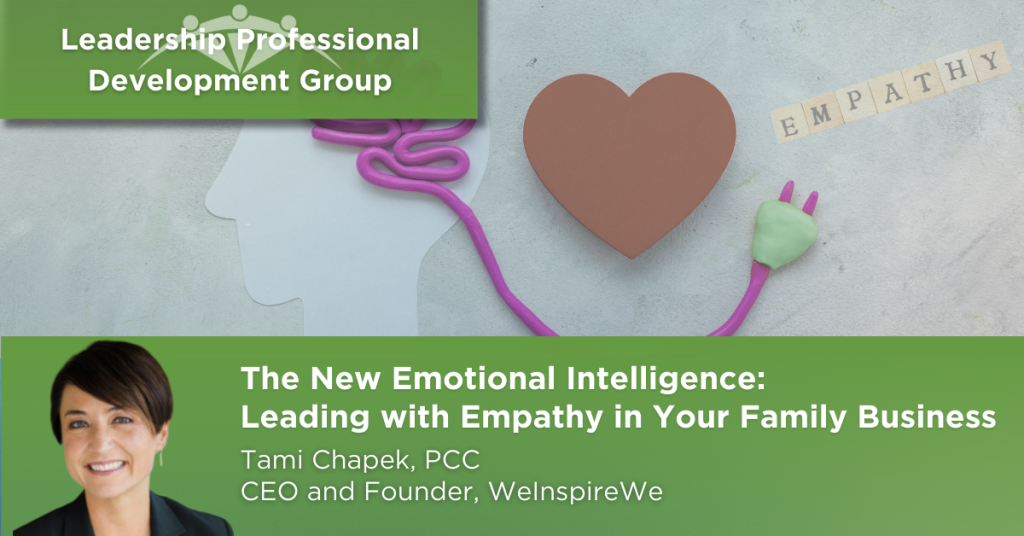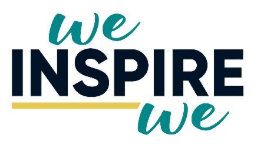At our most recent Leadership Development session, I had the privilege of discussing a topic incredibly close to my heart, especially for those of us navigating the unique waters of a family-owned business: Emotional Intelligence (EQ). If you were with me, you know that EQ isn't just a buzzword; it's the invisible force that can make or break a family enterprise, distinguishing enduring legacies from fleeting ventures.
What Exactly is Emotional Intelligence?
At its core, emotional intelligence is the ability to recognize, understand, and manage your own emotions, as well as recognize and influence the emotions of those around you. Think of it as "being smarter with feelings" – blending rational thought with emotional insight to make better decisions, build stronger relationships, and skillfully navigate the complex dynamics inherent in any business, let alone one built on family ties.
For leaders in a family business, where personal history, shared values, and often high stakes are intertwined with professional responsibilities, EQ isn't just beneficial, it's absolutely essential. It helps you navigate sibling rivalries, manage expectations across generations, and make tough calls that impact both the balance sheet and the dinner table.
The Unshakeable Link: Why Empathy is the Heart of EQ
While all components of EQ are vital, there's one that stands out as truly foundational: Empathy.
Empathy is the ability to truly step into another person's shoes, to understand and share their feelings without judgment, and to see the world from their perspective. It’s what moves us from simply being self-aware to becoming socially aware, connecting us deeply with our family members, employees, and customers.
Why does this matter so profoundly in a family business?
- Bridging Generational Gaps: Empathy allows a seasoned founder to understand the fresh perspectives and digital fluency of the younger generation, or for a successor to appreciate the founder's wisdom and caution. It closes the "experience gap" by fostering mutual respect.
- Navigating Difficult Conversations: Family businesses often face emotionally charged decisions – succession planning, performance reviews, or strategic shifts. Empathy equips you to approach these conversations with sensitivity, understanding the underlying fears or hopes of those involved, leading to more constructive outcomes.
- Building Trust and Loyalty: When your family members and employees feel truly seen and understood, it builds an unbreakable bond of trust. This isn't just about professional loyalty; it taps into the deep, personal loyalty that can be the bedrock of a thriving family enterprise.
- Boosting Performance and Innovation: Studies show that empathetic leadership directly correlates with higher employee engagement and performance. When people feel understood and valued, they are more willing to contribute ideas, take risks, and commit to shared goals. A Catalyst study found that 76% of people whose boss showed empathy felt engaged at work, compared to only 32% with an unempathetic boss. Imagine the impact this has when those "employees" are also your kin!
Empathy: A Non-Negotiable Skill in a Post-COVID World
The global shift to remote and hybrid work models, accelerated by the pandemic, has fundamentally changed what we expect from a leader. With fewer in-person cues and a heightened focus on mental health, empathy is no longer just a "nice-to-have" quality; it is a required skill for effective leadership.
In this new era, leaders must be more intentional about checking in on their team members' well-being. They need to create a sense of belonging and psychological safety from afar, and that can only be done through a genuine, empathetic connection. Leaders who can read the emotional tone of a virtual meeting or a Slack message and respond with understanding are the ones who are retaining their top talent and fostering a resilient, productive culture.
The Essential Balance: Empathy for Self
Now, here's the critical nuance, especially for family business leaders who often carry immense burdens and feel responsible for everyone: Empathy isn't just for others; it's also for yourself.
In the constant give-and-take of a family business, it’s easy to neglect your own emotional well-being. You might push past burnout, ignore your own frustrations, or minimize your personal needs for the sake of the family or the business. This is where self-empathy comes in:
- Understanding Your Own Limits: Leaders with self-empathy recognize when they are nearing their breaking point. They acknowledge their stress, their doubts, and their need for rest or support.
- Compassionate Self-Talk: Instead of harsh self-criticism, self-empathy means treating yourself with the same kindness and understanding you would offer a struggling family member.
- Avoiding Resentment and Burnout: By listening to your own emotional needs, you prevent the slow burn of resentment and the inevitable crash of burnout. This ensures you can sustain your leadership effectively for the long haul.
Your Daily Empathy Practice
Leading a family business demands a unique blend of strategic acumen and emotional resilience. By cultivating a high EQ, with a strong emphasis on both empathy for others and vital self-empathy, you equip yourself not just to manage but to truly lead with heart and head.
To start embedding this into your routine, consider asking yourself these questions on a regular basis:
- Self-Empathy Check: "What is my emotional state right now? Am I acknowledging my own stress or fatigue, and what can I do about it?"
- Empathy for Others: "Today, did I truly listen to someone—a family member or an employee—with the goal of understanding their perspective, not just waiting for my turn to speak?"
- Action: "What is one small, tangible action I can take right now to show I care, without expecting anything in return?"
This balance ensures that your family business thrives not only financially but also relationally, creating a legacy that is both prosperous and profoundly human.
If you have questions about how to apply these principles to your unique family business, feel free to share them in the comments below or reach out to me directly at Tami@weinspirewe.com.
Tami Chapek, PCC
CEO and Founder | Executive Leadership Coach
WeInspireWe
If you are interested in topics that address leadership roles in your family-owned business, please join us at our Leadership Development monthly sessions that Tami facilitates. Contact Amy at adotts@familybusinesscenter if you have any questions about this group.


